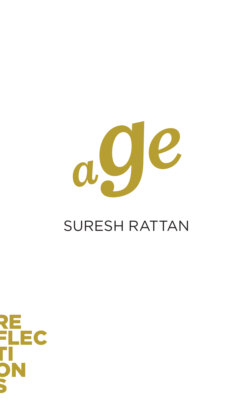Читать книгу Age - Suresh Rattan - Страница 3
На сайте Литреса книга снята с продажи.
JUST A NUMBER? MY PERSONAL SECRET
ОглавлениеIt was a warm, sunny day in May 2015. That was the day I reached the age of sixty. Or should I say that was the day I attained the age of sixty? Or is it better to say that I turned sixty years old that day? Or just simply admit that I was now sixty, entering my sixty-first year? What am I, and who am I? Let me reflect on that for a moment …
Well, surely I did not feel 60 anymore that day than I felt the day before. Actually, let me share my personal secret with you. For the last twenty years I have never felt older than 45. When I was a teenager, I sometimes behaved the other way round, as if I were 45 – a mature, wise, experienced, trustworthy man. At that age I wanted to be treated, respected and accepted as if I were much older.
My father also used to say, right up until his death in 1996, that he felt much younger than what his birth certificate from 1909 showed. Another close friend, who was 78 and had cancer, told me something similar just a few days before his death. On good days he felt no older than 50, but on bad days he felt as if he were already dead.
Apparently, the manner in which we experience our age is dependent on the health of our body and mind. In any case, what do these age-related numbers mean? Is age just a linear sequence of numbers that begins at zero when we are born and ends when we die?
Age, no doubt, touches all areas of our thoughts and actions, and much more. Indeed, the word ‘age’ encompasses the period from the dawn of time, with the Big Bang 14 billion years ago, up until today. Everything has an age. Age has an enormous significance for us human beings. How we consider and handle the question of age is based, not least, on our personal psychological interpretations. In this presentation, however, I must stay focused on my own research field.
I am a gerontologist, and I study age and ageing. The word ‘gerontology’ comes from the Greek words geron, meaning ‘old person’, and logia, meaning ‘the study of’. More precisely, I am a biogerontologist, so I do research on the biological mechanisms of ageing, and how and why our bodies become old.
We are born, we grow, we develop, mature, reproduce, become old, and eventually we die. This is the story of all living systems in one way or another. All biological systems – cells, tissues, organs, organisms – die, sooner or later. Therefore, first and foremost, I would think about age as a biological concept that marks our birth and death.
As a scientist I want to find out whether there is any specific stage in life when we begin to age. That is why, if not constantly then at least daily, I ponder several questions. What is it that makes us old? Does our age determine how long we will live? Could we live forever? Do we wish to live forever? Should we live forever? These questions surely give pause and call upon reflection.
